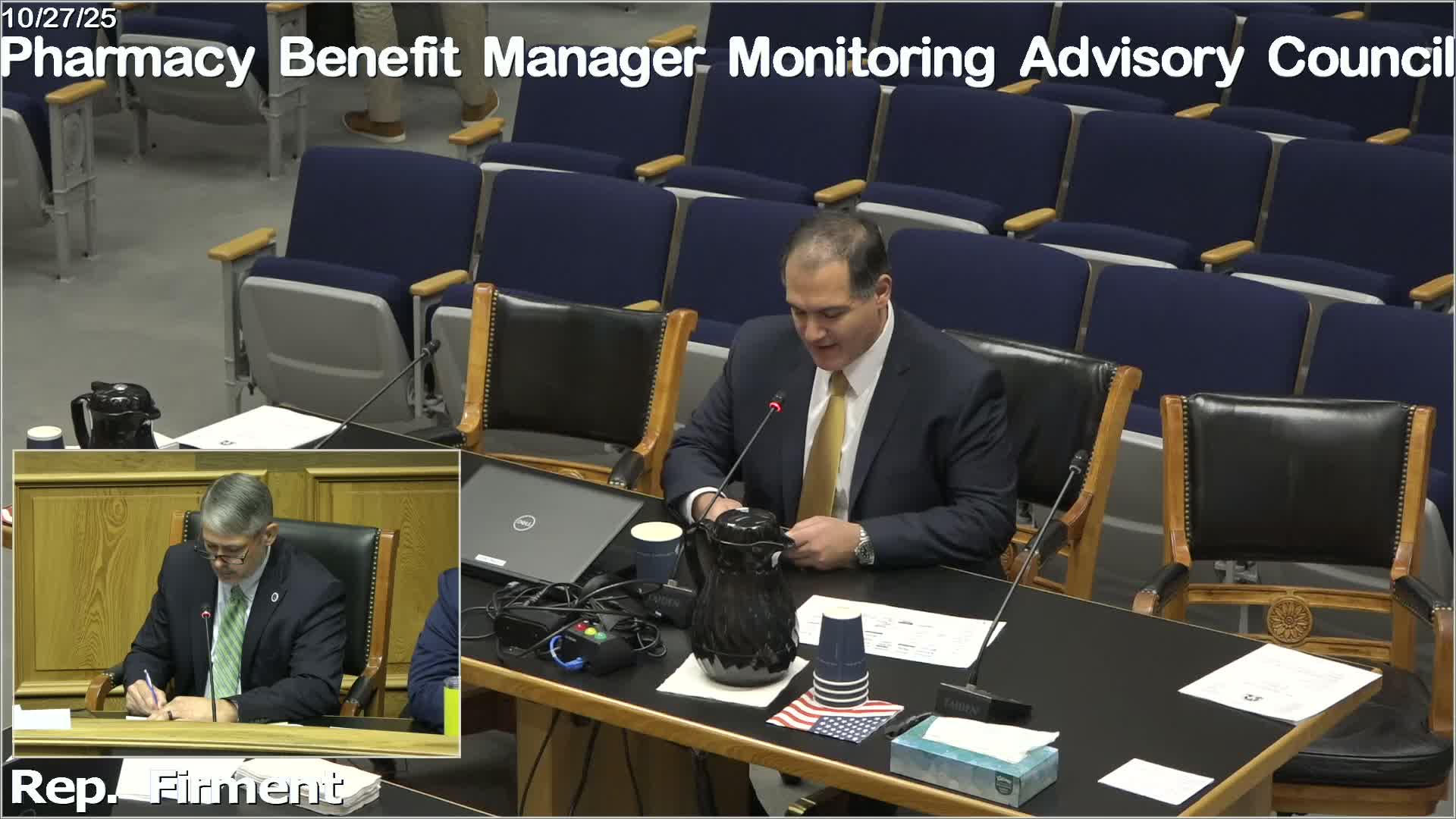Rheumatologist and physician witnesses say PBM practices are delaying care; call for transparency and 'delinking' of PBM pay from list price
Get AI-powered insights, summaries, and transcripts
Subscribe
Summary
Dr. Joseph Neshawat, a Baton Rouge rheumatologist testifying for the Coalition of State Rheumatology Organizations, told the council PBM practices — formulary changes, forced switches and mail‑order mandates — are causing delays and access problems for patients and urged stronger transparency and compensation delinking.
Dr. Joseph Neshawat, a Baton Rouge rheumatologist representing the Coalition of State Rheumatology Organizations, told the council on Oct. 27 that PBM practices can and do delay access to medically necessary specialty medications and that the effect falls hardest on patients with complex chronic conditions.
Neshawat described multiple, concrete problems he said he sees in practice: formulary‑driven exclusion of a drug that had previously kept a patient stable; lengthy prior authorization and appeal timelines that can take months rather than days; and mail‑order mandates that are impractical or unsafe for some patients because of delivery risks or unreliable service in rural neighborhoods. The physician said these barriers can cause disease flares, hospitalizations and worse outcomes for patients with rheumatoid arthritis, lupus and other chronic inflammatory illnesses.
Neshawat urged two policy changes: stronger transparency and accountability around PBM rebate retention, spread pricing and ownership; and delinking PBM compensation from list prices (so that PBM pay does not increase when list prices are higher). He praised Louisiana’s recent HB 264 (noted in testimony as requiring certain rebate pass‑throughs) as a step forward but called for additional changes that prioritize timely access, citing Colorado’s recent delinking law as an example he supports.
On clinical operations, Neshawat described how providers often have to spend substantial staff time on prior authorizations and appeals and said he sometimes starts the appeals process at the beginning of a patient visit and continues it while delivering care because securing access can take many days. He told the council that patient cost‑sharing information is often not available in real time and that the lack of price visibility impairs clinical decision‑making.
Council response: Members thanked the physician and asked for follow‑up on how frequently delays occur, whether electronic health records can improve price visibility and whether state contracts or procurement rules can be used to protect independent community pharmacies serving rural areas.
Why it matters: Physician testimony highlighted patient safety and continuity‑of‑care concerns and reinforced legislative interest in transparency and reform options the council is considering.
